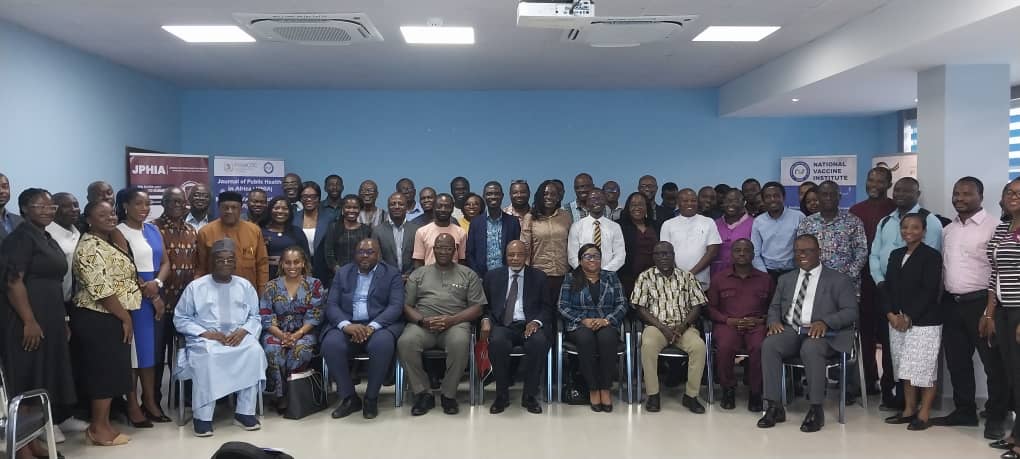By Samira Larbie
Accra, July 4, GNA – The Africa Centres for Disease Control and Prevention (Africa CDC) has advocated for reduced article processing charges to facilitate the publication of scientific findings by more African countries and researchers.
This would provide additional resources to address some of the key pillars of the new public health order, Professor Nicaise Ndembi, Senior Advisor Africa CDC and Editor-In-Chief of the Journal of Public Health in Africa (JPHIA) has said.
He made the call at a meeting organised by the Journal of Public Health in Africa and the National Vaccine Institute, Ghana in Accra on Thursday.
The meeting, which was organized for researchers from Ghana and other African countries, aimed to Africanize scientific excellence and promote the Africa CDC journal.
It was also aimed at building the capacities of African scientists in writing and publishing findings from their own research and implementation science.
Prof Ndembi said more research was urgently required because Africa was the most vulnerable region to infectious disease threats.
He noted that every year, 100 health emergencies are documented, with infectious diseases accounting for 90 per cent and zoonotic diseases responsible for 70 per cent, adding that “no country is well prepared for an infectious disease outbreak, and Africa is even worse.”
Prof Ndembi said that in constructing the global health architecture, African countries must adhere to the Africa CDC’s new five main pillars of public health order.
The new public health order calls for stronger public health institutions, a larger public health workforce, greater vaccine, diagnostic, and therapeutic production, more domestic health-care investment, and respectful action-oriented partnerships.
Prof Ndembi called on African countries to prioritize research findings to enhance public health systems.
Speaking on Knowledge Hubs and the Publishing Landscape in Africa, Dr Loice Cushny of the Africa CDC, called for collaboration and cross-learning among different stakeholders and jurisdictions.
This will serve as a platform for information exchange, and knowledge sharing, minimise duplication and time waste in inventing the wheel, she added.
Prof Willam Kwabena Ampofo, the Chief Executive Officer of the National Vaccine Institute, called on scientists to document their works to create the enabling environment for research development and manufacturing of vaccines in Ghana.
He said that the JPHIA had been in existence for five years and that it was time for African researchers to publish in the journal on the different high-quality vaccines being developed.
Dr Wisdom Atiwoto, Director of Research Statistics and Information Management at the Ministry of Health, asked researchers to work with the Ministry to ensure the successful application of research findings.

During the panel discussion, scientists advocated for robust mentorship programmes that would allow scientific students to get guidance throughout their practice.
They also appealed for the necessary resources and time to be able to publish their scientific findings for proper public health system implementation.
Dr. Gifty Dufie Ampofo, a representative from the University of Allied Health Sciences (UHAS) Ho, urged scientific students to understand the need of publishing as early as possible to develop interest.
GNA